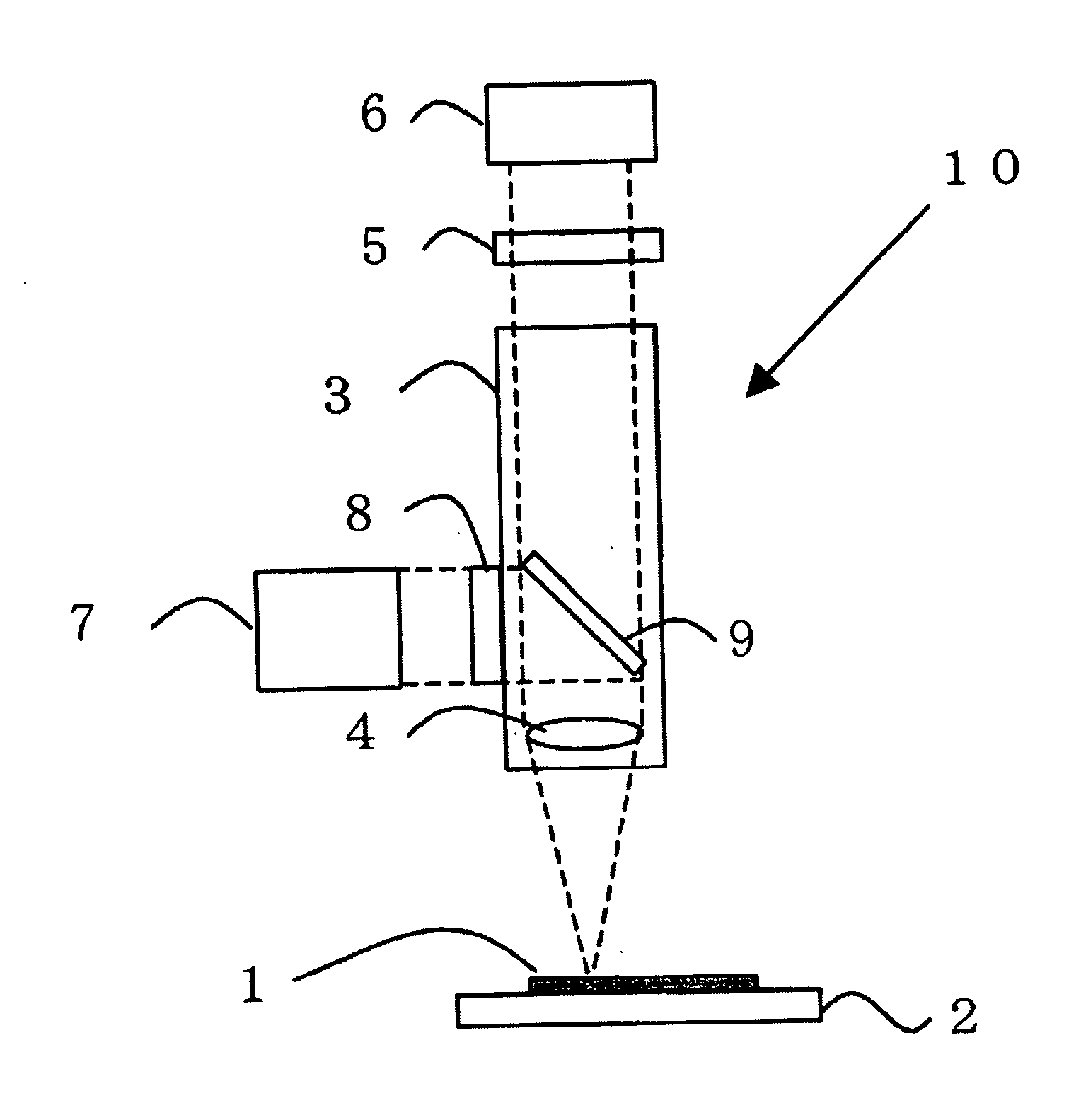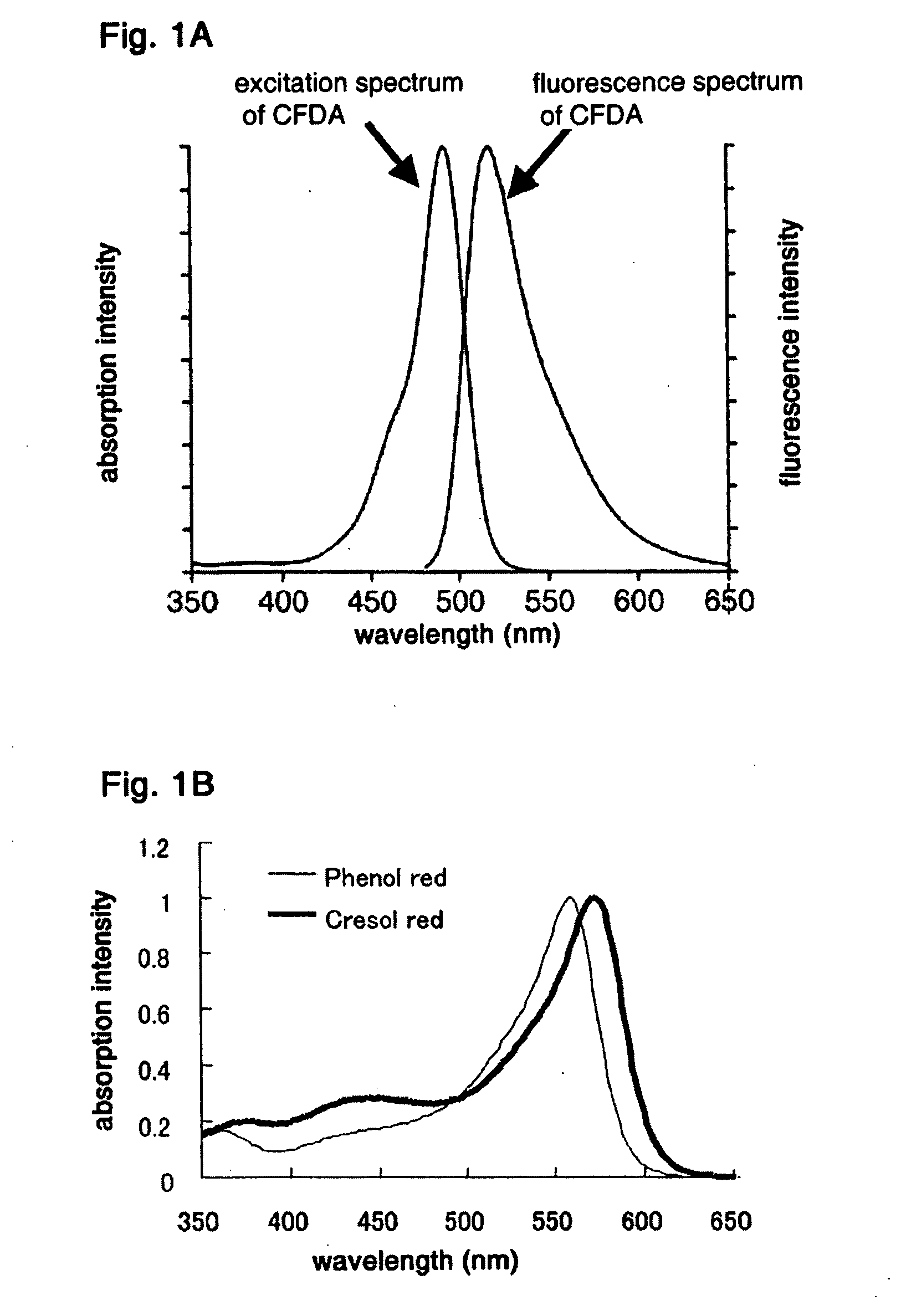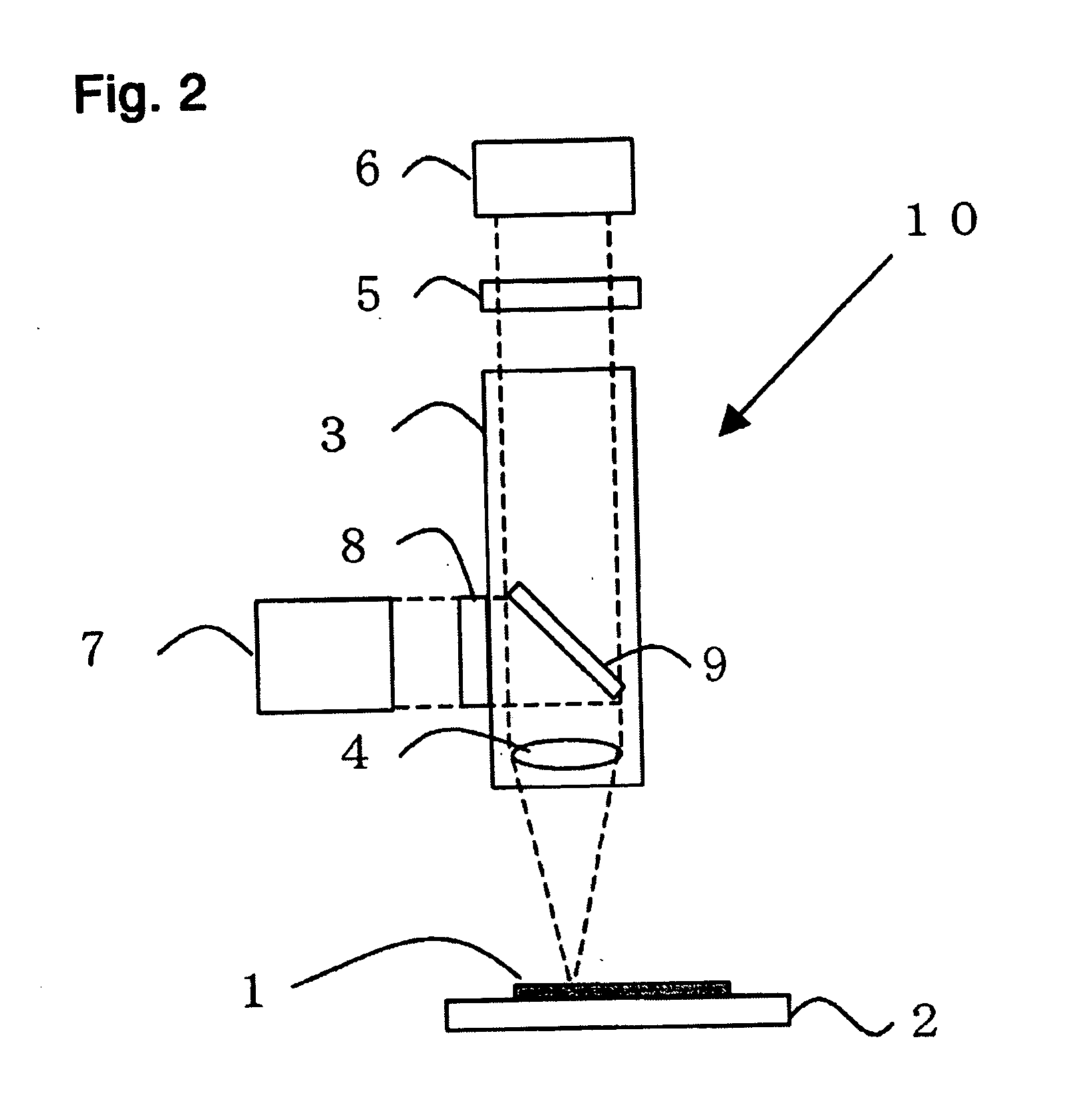Method of detecting viable cells
a technology of viable cells and fluorescent diacetate, which is applied in the field of detection methods, can solve the problems of inability to accurately quantify viable cells in the case of samples containing live microorganisms, dead microorganisms, other inclusions, and inability to dissociate and stain fluorescein diacetate, and achieve the effect of reducing the influence of ph
- Summary
- Abstract
- Description
- Claims
- Application Information
AI Technical Summary
Benefits of technology
Problems solved by technology
Method used
Image
Examples
Embodiment Construction
[0071] The method of detecting viable cells according to the invention can be described in three major steps. In Step 1, cells are stained fluorescently by adding a fluorescent dye to a sample or putting a sample in contact with a fluorescent dye. Although the cells can be stained by adding a fluorescent dye solution directly to the sample, the preferred method is to stain the cells in a sample with a fluorescent dye after fixing the sample onto a filter or an adhesive sheet as disclosed in (i) to (iii) below: [0072] (i) To extract the cells in a sample, a proper amount of the sample in a liquid state is filtered. The filter traps cells and other substances (live and dead cells and other inclusions such as dust) in the sample on the surface of the filter. A suitable filter can be a membrane filter made of polycarbonate, polyester or the like, in black color or transparent, having a pore diameter of 0.2 to 0.6 μm. Such membrane filters are commercially available, specific examples of...
PUM
| Property | Measurement | Unit |
|---|---|---|
| wavelength range | aaaaa | aaaaa |
| pH | aaaaa | aaaaa |
| pH | aaaaa | aaaaa |
Abstract
Description
Claims
Application Information
 Login to View More
Login to View More - R&D
- Intellectual Property
- Life Sciences
- Materials
- Tech Scout
- Unparalleled Data Quality
- Higher Quality Content
- 60% Fewer Hallucinations
Browse by: Latest US Patents, China's latest patents, Technical Efficacy Thesaurus, Application Domain, Technology Topic, Popular Technical Reports.
© 2025 PatSnap. All rights reserved.Legal|Privacy policy|Modern Slavery Act Transparency Statement|Sitemap|About US| Contact US: help@patsnap.com



